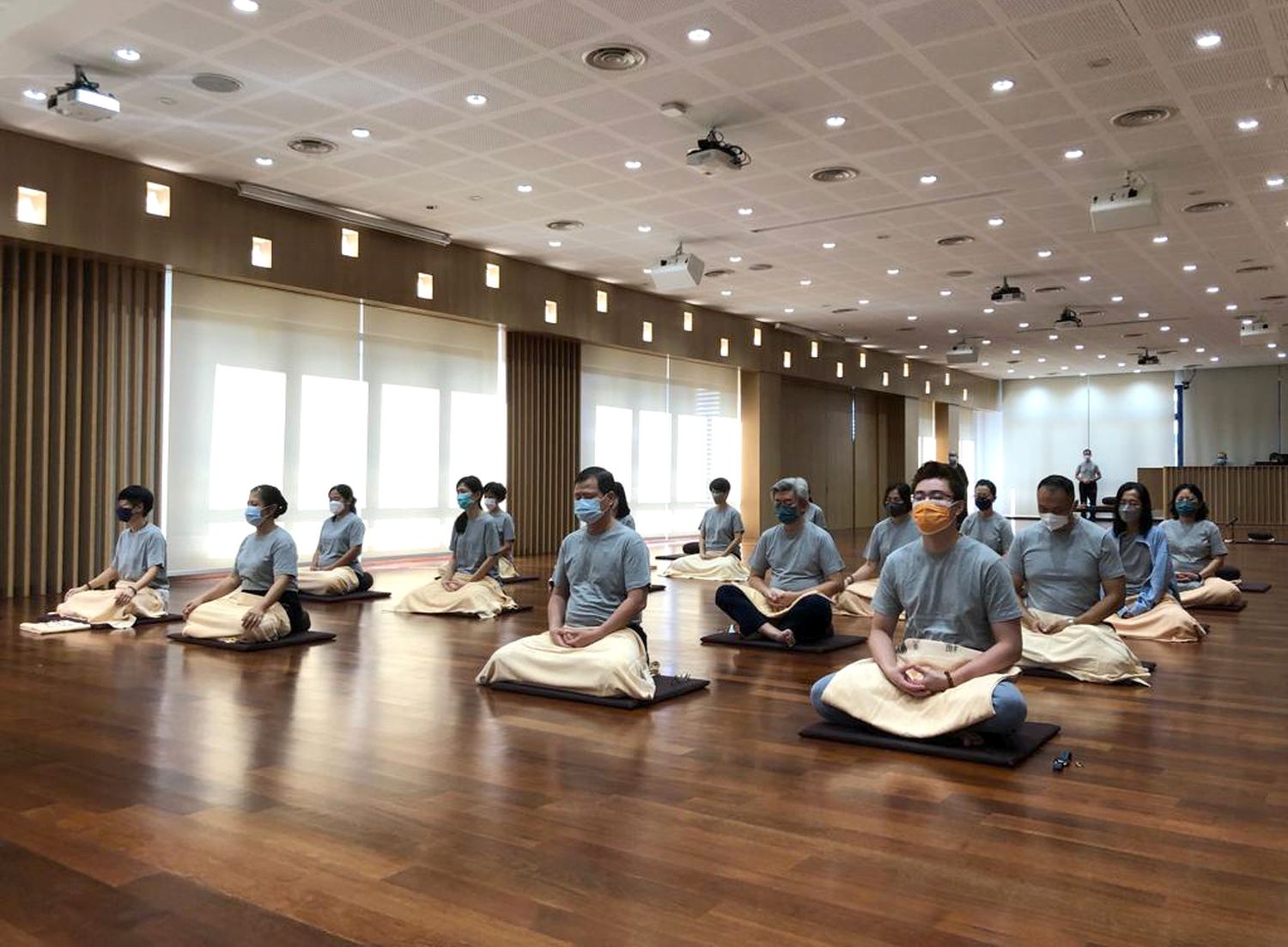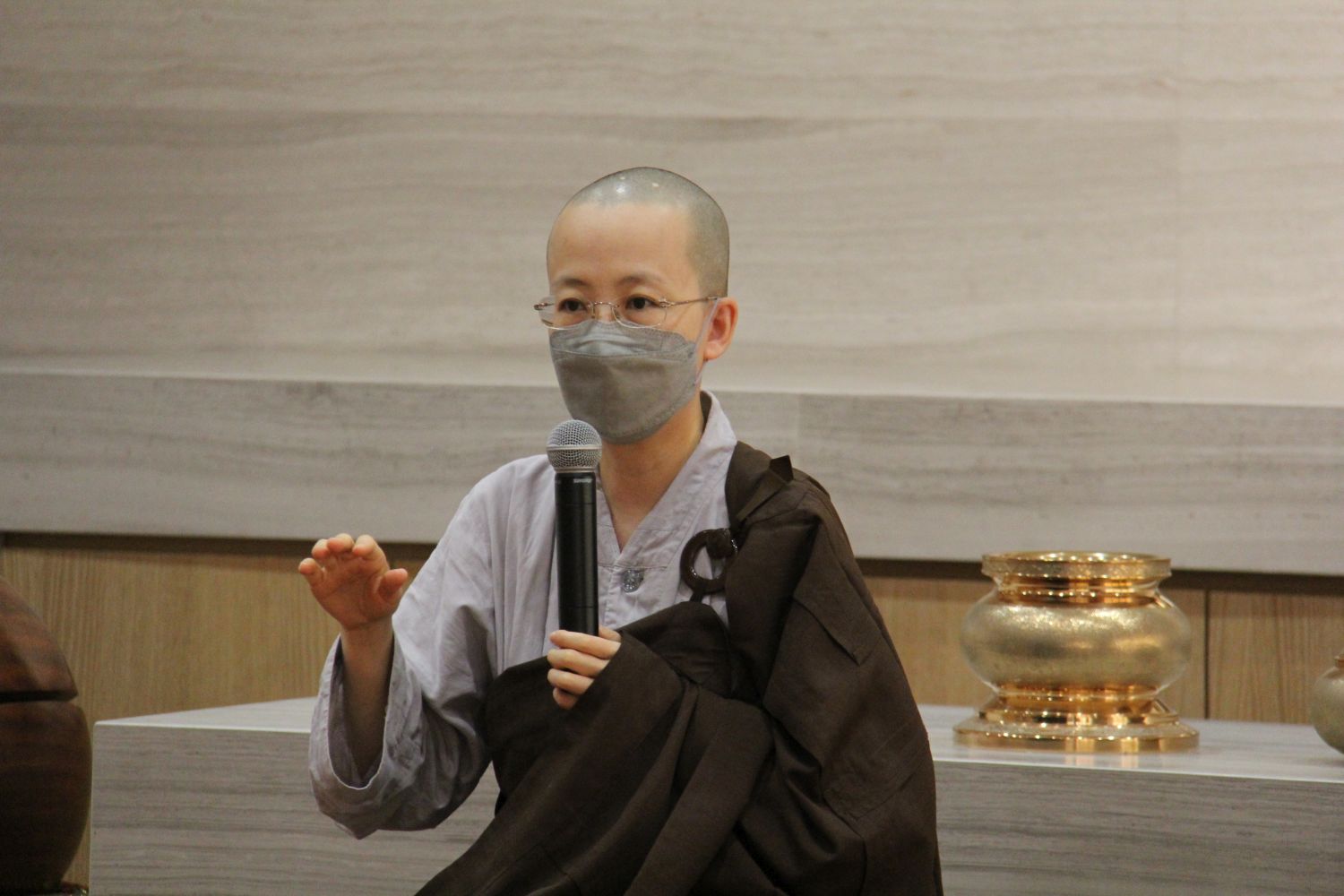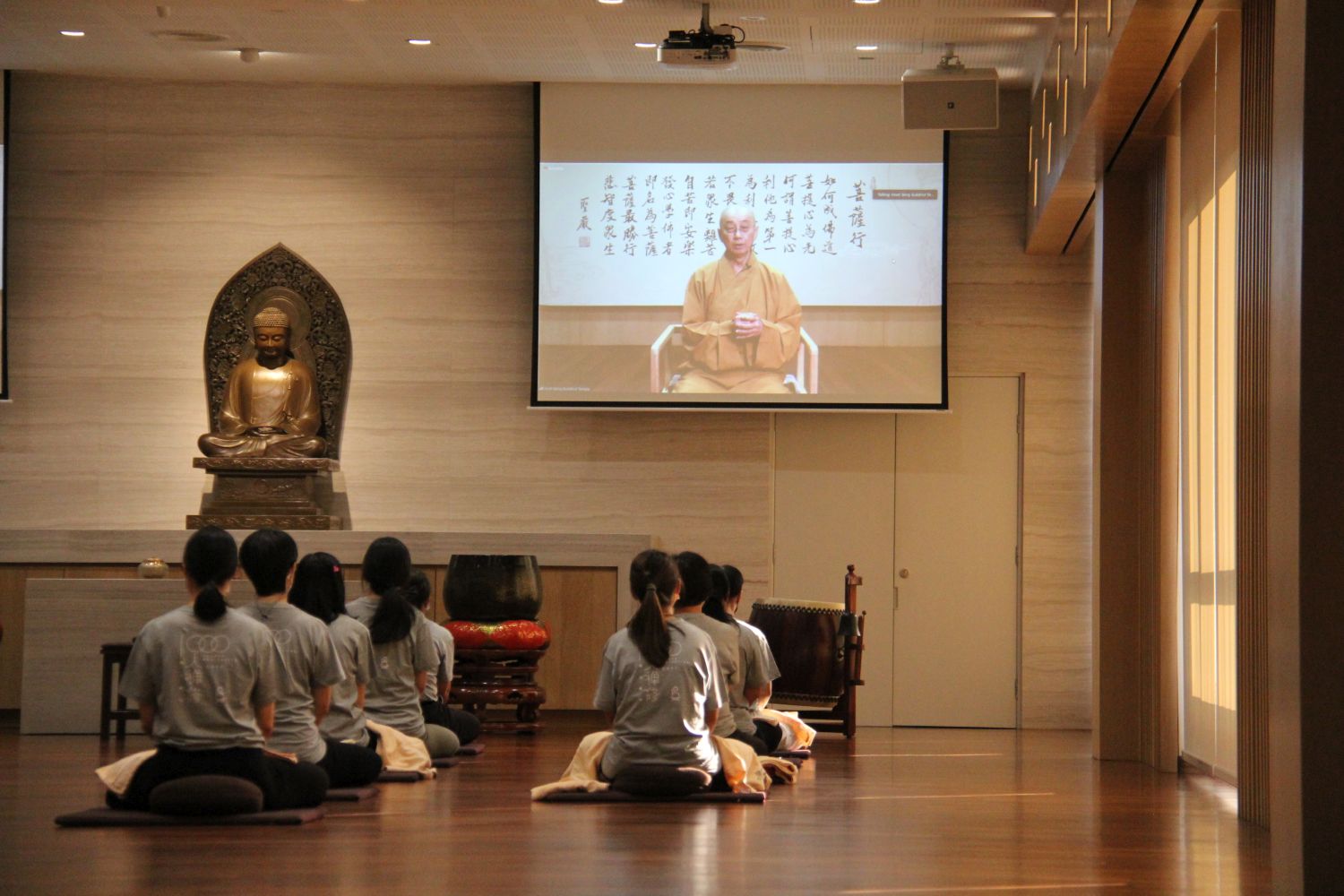DDM Global News
DDM Malaysia Buddhist Center Participated in the Online/In Person “Thousand People Meditation” Event
Updated August 24, 2022 To commemorate the 60th anniversary of Vesak becoming Malaysia's official public holiday, Hoeh Beng Buddhist Temple invited various Buddhist organizations to participate in the online/in-person "Thousand-People Meditation" event on August 7th, 14th and 21st. Teachers from Theravada, Mahayana, and Vajrayana schools shared the Chan practice methods of their respective Buddhist traditions, teaching people the suitable application of Chan methods in daily life to discover inner stability and peace of mind in today’s ever-changing and turbulent world.
To commemorate the 60th anniversary of Vesak becoming Malaysia's official public holiday, Hoeh Beng Buddhist Temple invited various Buddhist organizations to participate in the online/in-person "Thousand-People Meditation" event on August 7th, 14th and 21st. Teachers from Theravada, Mahayana, and Vajrayana schools shared the Chan practice methods of their respective Buddhist traditions, teaching people the suitable application of Chan methods in daily life to discover inner stability and peace of mind in today’s ever-changing and turbulent world.The event debuted on August 7th with the Mahayana tradition of practice, led by Venerable Chuan Wen, Abbot of Hoeh Beng Buddhist Temple, and Venerable Chang Zao, Director of Dharma Drum Mountain Buddhist Center Malaysia. To conclude the event, a Dharma talk was delivered by Venerable Chi Chern, Abbot of Puzhao Buddhist Vihara.
Ven. Chuan Wen introduced their Dharma lineage, which descends from Seung Sahn Haengwon, the Chan master of the Jogye Order of Korean Buddhism. Ven. Chuan Wen stated forthright that we all possess Buddha nature, which can be realized through Chan practice. The Venerable guided participants through relaxation methods and sitting meditation to assist them in calming their bodies and minds.
 Ven. Chang Zao stated that every one of us already possesses the most precious treasure: our innate and pure Buddha nature. Yet, we have spent our whole life looking outside of ourselves. The purpose of meditation is to practice being in the present moment in our daily lives, in order to realize our Tathagata treasure. The Venerable led moving meditation and sitting meditation to collect, settle and calm the minds of the participants. The Venerable reminded participants that learning meditation requires the gradual regulation of the body, the breath, and, finally, the mind. During the latter stage of mental regulation, the mind progresses from being scattered to becoming concentrated, then unified, and, finally, to no mind. The goal of Buddhist practice is not to attain unified mind, but, rather, no mind, which is wisdom arising from no self. When one is no longer self-centered, the mind stops generating vexations.
Ven. Chang Zao stated that every one of us already possesses the most precious treasure: our innate and pure Buddha nature. Yet, we have spent our whole life looking outside of ourselves. The purpose of meditation is to practice being in the present moment in our daily lives, in order to realize our Tathagata treasure. The Venerable led moving meditation and sitting meditation to collect, settle and calm the minds of the participants. The Venerable reminded participants that learning meditation requires the gradual regulation of the body, the breath, and, finally, the mind. During the latter stage of mental regulation, the mind progresses from being scattered to becoming concentrated, then unified, and, finally, to no mind. The goal of Buddhist practice is not to attain unified mind, but, rather, no mind, which is wisdom arising from no self. When one is no longer self-centered, the mind stops generating vexations. Venerable Chi Chern concluded with a Dharma talk, explaining that many people misunderstand Chan as lacking step-by step guidelines, being esoteric, or being devoid of theoretical basis. In fact, if we understand the Chinese Chan tradition and its historical backgrounds, we can see that the Chan approaches have been simplifying the complicated. Only with a correct understanding of Buddha Dharma--which is the foundation of Chan practice-- can one benefit from practice, thereby attaining a stable and clear mind and realizing that every moment of every day is wholesome and auspicious.
Venerable Chi Chern concluded with a Dharma talk, explaining that many people misunderstand Chan as lacking step-by step guidelines, being esoteric, or being devoid of theoretical basis. In fact, if we understand the Chinese Chan tradition and its historical backgrounds, we can see that the Chan approaches have been simplifying the complicated. Only with a correct understanding of Buddha Dharma--which is the foundation of Chan practice-- can one benefit from practice, thereby attaining a stable and clear mind and realizing that every moment of every day is wholesome and auspicious.Text: Mei-chiang Cheng (鄭美強)
Photos: Li-ling Lin (林麗玲)
Translation: Vicky Wei (韋徵儀)
Editing: Venerable Yan Hsiang (演香法師), Keith Brown
Translation: Vicky Wei (韋徵儀)
Editing: Venerable Yan Hsiang (演香法師), Keith Brown
